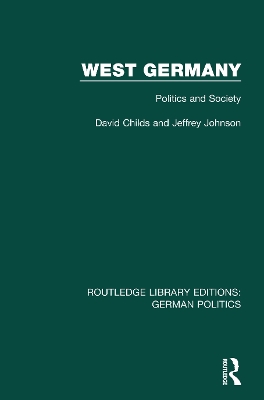Routledge Library Editions: German Politics
3 total works
This book, originally published in 1981, provides the student and general reader alike with a fascinating account of the dynamic re-emergence of Germany after the Second World War as one of the world's leading and most powerful states. The book gives extensive coverage to all aspects of the former West Germany's political, social and economic arrangements. As well as dealing with the Basic Law, political parties, Bundestag and government, it also discusses neglected subjects, such as education, the armed forces, welfare services, the role of women, the economy and industrial relations and the mass media.
The book traces the development of Germany from the Kaiser's Reich in the 1870s to the reunited democratic state led by Helmut Kohl in the 1990s. The author begins by countering the popular view of Germany before 1914 as irredeemably reactionary, and after assessing Germany's part in the First World War, he outlines the rise and fall of the Weimar Republic. The 12 years of Hitler's destructive experiment are presented in a balanced way as part of the overall development of the country. Germany in defeat is then discussed, as is heer rebirth under Four Power occupation. The last chapters explore the two separate German states and the events leading up to the restoration of German unity.
Widely praised in its first edition, the second edition of The GDR was updated to cover events through the spring of 1988, examining in particular the impact of new leadership in both Bonn and Moscow and of the changing world economy on the prospects of the GDR.


